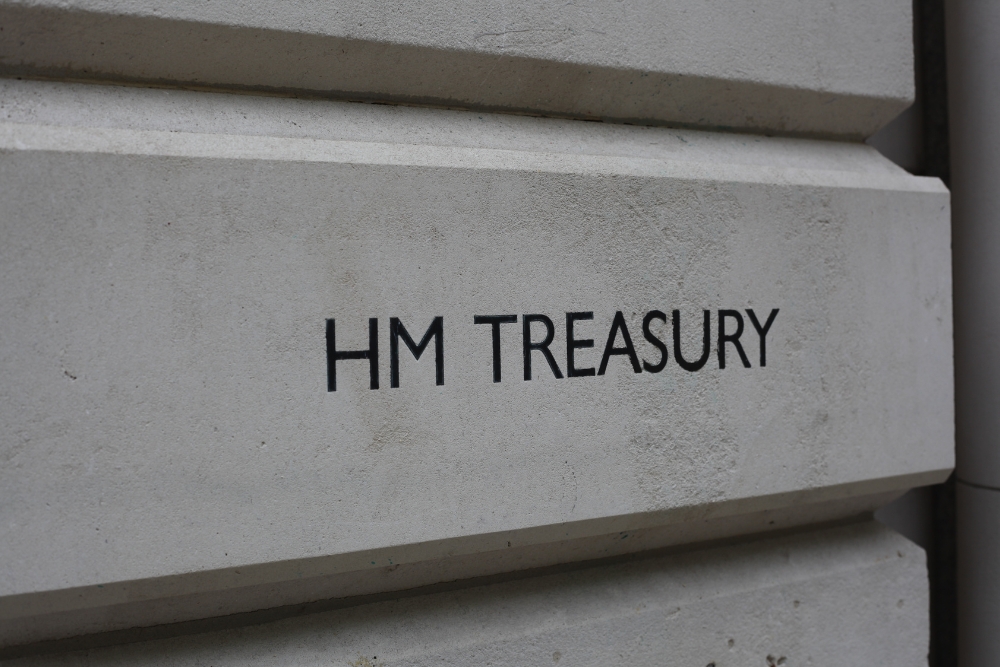What does the UK Spring Statement mean for the fleet and automotive sector?
By SG Fleet | 28 February 2025

Chancellor Rachel Reeves’ recent Spring Statement has laid down some important markers for the fleet, automotive, and wider transport and MaaS sectors. Though much of this year’s Statement focuses on defence spending, welfare reform, and broad fiscal measures, some key points are particularly relevant to fleet, leasing, and automotive sectors.
What are the key takeaways?
- Fuel Duty Freeze Offers Stability
The continued freeze on fuel duty helps keep costs steady for fleet operators, especially high-mileage businesses.
- Inflation and Oil Price Volatility
While inflation may peak in 2025, fluctuating global oil prices could still affect fuel and operational costs.
- No New Automotive Taxes or Incentives
There are no changes to VED, EV grants, or infrastructure support, leaving fleets to monitor future policy updates.
- Infrastructure Investment Brings Indirect Benefits
Government plans to boost construction could indirectly drive logistics demand, though no major road or EV projects were announced.
- Tax Compliance Becomes Crucial
Making Tax Digital reforms mean smaller automotive businesses must stay compliant to avoid penalties.
Let’s take a closer look at the UK Spring Statement
The Statement acknowledges that global economic uncertainty has increased. Lots of the top economies are experiencing slower growth, and borrowing costs have risen, partly due to higher global interest rates. For the automotive sector – strongly exposed to both consumer confidence and supply-chain dynamics – these trends can mean tighter margins and variations in vehicle demand, as well as cost pressures on imported parts.
Inflation and UK interest rates.
A central point of the Spring Statement is the forecast that the Consumer Price Index (CPI) inflation will peak at around 3.8% in mid-2025. It’s then expected to gradually return to the Bank of England’s 2% target from 2026 onward. Higher inflation could mean increased vehicle prices (especially those dependent on internationally sourced components) and bigger costs for essentials like maintenance, tyres, and replacement parts.

Fuel and electricity prices also have a strong bearing on fleet budgets.
While the Spring Statement doesn’t introduce fresh announcements about fuel taxation beyond last autumn’s budget freeze, inflation’s trajectory remains pivotal for day-to-day operational spending. The Chancellor noted that the Bank of England’s Monetary Policy Committee has cut the Bank Rate three times since July, which could mean that the aim is to keep financing costs manageable.
Fuel duty and vehicle operating costs
There was no major change in the UK Spring Statement about fuel duty, and the Chancellor reaffirmed the past policy from the autumn Budget. Fuel duty was frozen last year, and the Government hasn’t signalled an immediate intention to reverse that move in the near term. By deciding to maintain the freeze, there’s no added pressure on ICE vehicles at a time when the Statement has acknowledged wider inflationary strains. This gives some stability for drivers and fleet users planning their annual budgets and cost models. It’s worth noting that any future changes could materially affect both private and commercial vehicle usage.
Energy price volatility could have some ripple effects.
High-level references in the Statement to volatile global energy markets could underscore a bigger picture for fleets and drivers. Even with fuel duty stable, fluctuations in the oil market can push pump prices up or down. While the Chancellor acknowledged the complexities in the market, there was no indication of support or policy change to mitigate this in the short term. This is crucial for fleet users and drivers, as any sustained period of high inflation in energy markets can elevate traditional fuel prices as well as – in some circumstances – electricity prices.
Tax, compliance, and business operations
Some of the business measures in the UK Spring Statement hold importance for automotive firms, dealerships, and the sector generally, especially smaller enterprises. The Government is investing in HMRC to tackle non-compliance while simultaneously modernising tax collection.
The key developments are:
Continued roll-out of Making Tax Digital (MTD) for income tax Self-Assessment. For self-employed individuals, MRD compliance could influence how they file returns and manage financial reporting.
Increased late payment penalties for VAT taxpayers joining MRD from April 2025 mean that businesses need to ensure their VAT reporting is prepared for the new MTD requirements.
Greater automation in collecting outstanding tax debts. The Government is aiming to crack down on late payments for taxation, making accurate record-keeping even more pivotal.
These changes could result in an increased uptake in Benefit in Kind or Salary Sacrifice schemes, which offer users and employers simple admin that can result in lower monthly outgoings. To find out more about the recent changes to tax laws surrounding Benefit in kind packages, read our article dedicated to that topic.
Infrastructure and growth
The UK Spring Statement reiterated additional public capital investments – over £13bn across five years – though this is focused primarily on housing and ‘getting Britain building.’ The Chancellor’s mention of a Planning and Infrastructure Bill suggests further structural changes, but current details revolve predominantly around housing.

It’s worth bearing in mind that housing and general infrastructure improvements can often indirectly benefit the automotive sector if they involve upgrading roads, logistics hubs, or related transport networks. The Government has been clear about its intentions to build flourishing communities rather than just houses. Earlier this year, they announced plans for ‘new communities with beautiful homes, green spaces, reliable transport links, and bustling high streets,’ which could hint at changes for the automotive and fleet sector.
Wages, employment, and consumer demand
The Spring Statement noted that real wages rose at their fastest rate in three years at the end of 2024. A sustained rise in wages, if continued, can boost consumer confidence, which may affect car demand. Despite a rise in wages, the backdrop of an increased cost of living and volatile energy prices – as well as the supply chain concerns mentioned above – mean that Salary Sacrifice and personal leasing packages are still an attractive prospect for employees. The flexibility and peace of mind provided may be a way to offer a greater level of stability.
Want to get ahead of the changes? Partner with SG Fleet
Understanding and adapting to the Spring Statement is vital if you’re going to remain competitive. At SG Fleet, we specialise in helping you optimise your vehicle management strategies and navigate the changes in legislation and taxation. Our expert team can help you with everything from award-winning Salary Sacrifice and Personal Leasing solutions to more general fleet management support, including transitioning to a zero-emissions fleet. Get in touch with us today to find out more.
FAQs
What does a fuel duty freeze mean for fleet operators?
The continued freeze on fuel duty helps maintain stable operating costs, offering predictability for budget planning despite potential fluctuations in fuel prices.
Will inflation affect vehicle operating costs?
Yes, higher inflation can increase costs for maintenance, parts, and fuel. While fuel duty remains frozen, global oil price volatility may still impact pump prices.
Are there new tax measures affecting automotive businesses?
The Spring Statement 2025 does not introduce new automotive-specific taxes or incentives. However, ongoing digital tax compliance changes may impact smaller operators.
How will infrastructure spending affect fleets?
No direct road or EV infrastructure projects have been announced, but broader economic growth initiatives could indirectly support logistics and transport demand.
Further Reading
- Upcoming BIK and RFL changes’ impact on PHEV and ZEV drivers and fleets
- Company cars vs cash allowance: are businesses shifting gears?
- A look at the new players in the automotive market
- Are EVs viable in rural areas?


.png)


.png)
.png)
.png)